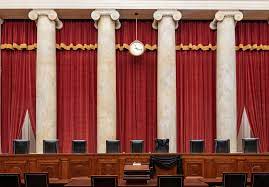New Protections of New Jersey Wage and Hour Law and New Jersey Wage Payment Law Apply Prospectively, Supreme Court Rules
New Jersey employment law affords significant wage and hour protections to employees through the New Jersey Wage and Hour Law and the New Jersey Wage Payment Law. Both laws were significantly strengthened by amendments in 2019, adding additional penalties, recovery of attorneys fees, enhanced damages, and a longer, six-year statute of limitations. One question left open by the Legislature was whether the statute of limitations would be applied retroactively to cover conduct prior to the amendments, or prospectively to cover only conduct from 2019 onward. The New Jersey Supreme Court has now unambiguously answered that question.
recovery of attorneys fees, enhanced damages, and a longer, six-year statute of limitations. One question left open by the Legislature was whether the statute of limitations would be applied retroactively to cover conduct prior to the amendments, or prospectively to cover only conduct from 2019 onward. The New Jersey Supreme Court has now unambiguously answered that question.
The New Jersey Wage Payment Law
The New Jersey Wage Payment Law was enacted in 1965 and governs the timing and payment of wages. It prohibits withholdings of wages unless the law expressly allows or requires. Wages must be paid at least twice per month, and no later than 10 days after the pay period covered. The employee must be told in advance what she will be earning, and before any changes to her pay are made. She must be paid all wages due when she leaves employment on the next regular payday.
 New Jersey Lawyers Blog
New Jersey Lawyers Blog


 supported by pro-employer groups. However, the United States
supported by pro-employer groups. However, the United States  and a half”) for work beyond forty hours in any week. However, there are exceptions. The major exemptions are for executive, administrative, professional, and highly compensated employees. In addition to the requirements particular to each exemption, the employees cannot be paid less than the threshold for the exemption.
and a half”) for work beyond forty hours in any week. However, there are exceptions. The major exemptions are for executive, administrative, professional, and highly compensated employees. In addition to the requirements particular to each exemption, the employees cannot be paid less than the threshold for the exemption.

 unreasonable or no accommodations or take leave unless medically necessary.
unreasonable or no accommodations or take leave unless medically necessary. Solutions U.S.A., Inc
Solutions U.S.A., Inc the New Jersey
the New Jersey